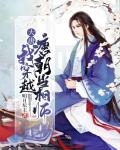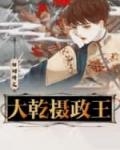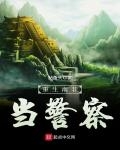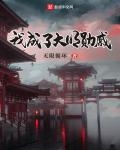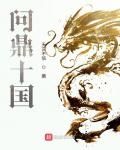Chapter 56: Heavenly Sacrifice
“Ding! Ding! Ding!”
Under the altar, twelve musicians who had been ready long ago struck the chimes.
Rows of chime bells, made of flat round bells of different sizes arranged in order of pitch, are hung on a huge bell stand. Musicians use T-shaped wooden hammers and long sticks to strike the bronze bells to produce different musical sounds.
The sound of the chimes is clear, bright, melodious and pleasant!
At this moment, the sound produced by the musicians playing the chimes seems particularly pure, elegant, and full of solemnity.
After the chime bells were played, all the timbres of the nearby wind drums, qin, fo er, zheng and other different musical instruments were completely blended together!
This is exactly a kind of ancient elegant music!
Then, a group of graceful singers began to hum along with the music.
What they sang with their beautiful voices was a melody with harmonious rhythm and full of solemnity!
War song!
"I wear armor and carry a long sword . I will fight with you. The road ahead is long!"
"We are united in the face of the enemy, and we live and die together. I will fight with you, and my heart will never be tired!"
"With my Wu hook and all my comrades, I will fight with you, and we will never grow old!"
"I will walk across the vast wilderness and chase away the enemies. I will fight with you and sing fearlessly!"
When people heard the poem sung by the singers, they were all shocked and stunned.
Including Shi Mimu, all the envoys from various countries could not help but be stunned !
After the song was over, Shi Mimu could not help but pull the sleeve of Ji Zha beside him and asked in a low voice: "Ji Zha, is this the Wu style poem you wrote?"
In the opinion of Shi Mimu and others, throughout the entire Wu State, the only person who could create such magnificent and rhythmic poetry was Ji Zha!
Because he is well versed in music, he is a great sage and a man of great virtue in the world.
In his early years, the State of Wu sent Ji Zha as an envoy to the State of Lu.
When he arrived in Lu, Ji Zha heard the magnificent Zhou music!
Then, with his deep sensitivity and outstanding insights, he analyzed the profound implications of the teaching of rites and music, as well as the rise and fall of the Zhou Dynasty, shocking everyone and making everyone look at him in awe.
When hearing "Tang", Ji Zha heard the legacy of the Tao Tang clan that had been passed down for thousands of years!
When he heard "Daya", he heard the virtue of King Wen in the profound and broad spirit of the music!
When the "Wei" song was played everywhere, the aspiration of the leader of the alliance, which was "big and generous, frugal and easy", reflected the teaching of culture and virtue that supported behavior with virtue.
When the "Zhao Xi" dance began, Ji Zha exclaimed: This is the most breathtaking piece of music of supreme virtue, just like the sky covering everything and the earth bearing everything.
Even if it is the highest virtue, there is nothing better than this!
“This is not a poem I wrote.”
The Prime Minister Ji Zha smiled slightly, stroked his beard and said: "This poem is called "Fighting with You". It was written by my king and I composed the music. Now my king has made it clear that this poem should become the battle song of my Wu army and be passed down from generation to generation."
"hiss!"
Upon hearing this, Shi Mimu and other envoys from various countries could not help but gasp and were extremely shocked.
Who would have thought that Qingji, who was known as the bravest warrior of the Wu State and unrivaled in bravery and martial arts, actually had such talent?
This poem filled with a solemn atmosphere, coupled with the majestic and soul-stirring music score, is simply a match made in heaven!
Moreover, following them came ninety-nine elite Wu soldiers wearing crimson uniforms and armor, standing under the altar.
They danced to the tune of the war song, chopping with their hands, punching, sinking, and doing horse stances... Every movement was rough and powerful, with a different kind of beauty.
Very masculine beauty!
This dance is different from the ones performed by those beautiful dancers, but it looks unique.
The song is over.
"good!"
"color!"
All the people watching the ceremony couldn't help but applaud and praise the performance endlessly.
"These Wu songs, Wu dances, and Wu music are truly unique in the world!"
"It was really worth the trip!"
"Wow! What a great poem! Wearing armor, carrying a long sword, fighting together against the enemy, and sharing life and death! It's really refreshing!"
"There are poems like the Beifeng, Yongfeng, Weifeng, Zhengfeng, Qifeng, etc. in the world, but why don't we see poems like the Wufeng?"
"Hahahaha! Confucius should have copied this poem into the Book of Songs and compiled it into Wu Feng!"
Everyone was talking about it, and they all felt that the poem written by the Wu man was quite excellent and should be included in the "Book of Songs" to be passed down to future generations.
The so-called Three Hundred Poems refer to the "Book of Songs", which has been revered as a Confucian classic by successive feudal dynasties since the Han Dynasty and is indispensable for the imperial examinations!
As the originator of "Warring with You", Qingji naturally believed that this poem was qualified to be included in "The Book of Songs"!
The influence of The Book of Songs is unquestionable.
The Book of Songs is divided into three parts: Feng, Ya and Song.
"The Wind" is a ballad from all over the Zhou Dynasty;
"Ya" is the Zhou people's formal music, which is divided into "Xiao Ya" and "Da Ya";
"Song" is the music for sacrifices in the Zhou royal court and aristocratic ancestral temples, and is divided into "Song of Zhou", "Song of Lu" and "Song of Shang"!
It is said that the Book of Songs was collected by Yin Jun Yin Jifu and later compiled by Confucius. It is the earliest collection of poems in China.
Every vassal state granted by the Zhou royal family had its own folk song, namely "Wind"!
Zheng has "Zheng Feng", Qi has "Qi Feng", Wei has "Wei Feng", Qin has "Qin Feng", and even some small countries that have disappeared have their own "Feng".
The remote State of Wu also had its own folk songs, including "Wu Feng". Unfortunately, it was not selected into Confucius' Three Hundred Poems and was lost later on!
Now, this poem “Wu Feng·Yu Zi Zheng Zhan” written by Qingji may not necessarily be appreciated by Confucius.
The song is over.
The musicians and singers under the altar sang "Daya" and "Zhou Song" respectively!
"In the Muqing Temple, solemn and solemn appearances are evident. Many talented people gather here, all of whom have the virtue of literature."
"The Yue is in the sky, and the horse is running in the temple. It is not obvious and not accepted, and it has no effect on people..."
Qingji was helpless.
Is this his coronation ceremony or a Spring and Autumn version of the concert?
Even so, Qingji had to keep calm and "appreciate" it patiently.
Finally, with the sound of trumpets, all the dance and music stopped!
Instead, a bonfire was lit under the altar, and then a large group of wizards dressed in strange costumes and chanting something came.
The wizards danced around the bonfire, shaking small drums, bells and other unknown instruments in their hands from time to time, and began to perform a ritual!
Qingji had no idea what they were mumbling.
Qingji simply followed the original etiquette. Facing the large bronze tripod in front of him that was emitting billowing black smoke, he raised his hands above his head, spread out his sleeves, and knelt down.

